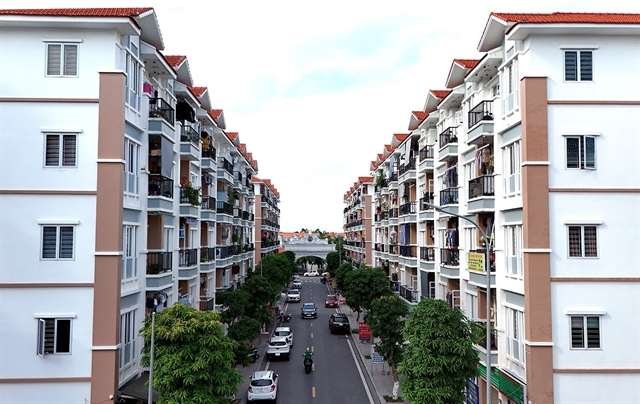
Vietnam’s ambitious plan to build one million social housing units for low-income earners and industrial park workers by 2030 is facing significant challenges as the government grapples with slow progress and policy roadblocks. Experts are calling for more flexible policies to attract investors and accelerate the pace of development in the social housing sector.
Launched in 2023, the mega-project aims to address the growing demand for affordable housing in urban areas and industrial zones. However, only 75 projects, comprising 39,884 units, have been completed to date, falling far short of the target. The government has set a goal to complete 130,000 units in 2024, but progress remains sluggish, with just eight projects finished in the first quarter of the year.
Key issues include land allocation, procedural bottlenecks, and limited access to preferential credit. According to Hoàng Hải, Director of the Ministry of Construction’s Department of Housing and Real Estate Market, some localities have struggled to identify suitable land for social housing, while others have faced transparency issues in land planning.
“Investors are hesitant due to capped profit margins and difficulties accessing land,” Hải said. “The disbursement of the VNĐ120 trillion preferential credit fund has also been slower than anticipated, further delaying project progress.”
The Ministry of Construction is now focusing on guiding localities through new housing and real estate laws and is urging a more strategic approach to meet the 2024 targets. One model of success has emerged in Hải Phòng, where the city has surpassed government goals by closely following real estate regulations and streamlining housing procedures.
With the 2024 National Assembly planning to review real estate and social housing policies, there is hope that new reforms will pave the way for smoother implementation and greater investment in Vietnam’s social housing sector.